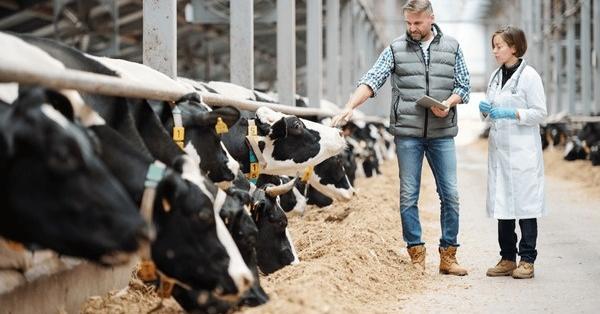In the heart of rural landscapes, where the rolling fields meet the endless sky, lies a world rich with the rhythms of nature and the pulse of agriculture. Here, amidst the rustic charm of farm life, resides a special breed of veterinarian—the rural vet. Their days are filled with the clucking of chickens, the lowing of cattle, and the gentle rustle of hay. In this blog, we’ll delve into the captivating world of rural veterinary medicine, sharing anecdotes, insights, and invaluable advice for caring for farm animals. Join us as we embark on a journey through the rural vet diaries.
The Rural Vet’s Toolbox: A Multifaceted Approach to Animal Care
Types of vets are as diverse as the animals they care for. Within the realm of rural veterinary medicine, versatility is key. From bovine specialists to equine experts, rural vets must possess a broad skill set to address the myriad health needs of farm animals. Whether it’s performing routine wellness exams, treating injuries, or assisting with births, they must be prepared for anything that comes their way. With a trusty stethoscope, a well-stocked medical kit, and a wealth of knowledge, they navigate the complexities of farm animal care with confidence and compassion.
An Ounce of Prevention: The Importance of Routine Care
One of the cardinal rules of veterinary medicine is that prevention is often more effective than treatment. Rural vets emphasize the importance of routine care to keep farm animals healthy and thriving. This includes regular vaccinations, deworming, and dental care, among other preventive measures. By staying ahead of potential health issues, they help farmers maintain robust and resilient herds, ensuring the long-term sustainability of their operations.
Tales from the Field: Anecdotes from the Rural Vet’s Diary
Every day in the life of a rural vet is an adventure filled with heartwarming moments, unexpected challenges, and the occasional dose of humor. Allow me to share a few anecdotes from my own experiences in the field:
The Case of the Mysterious Ailment: One crisp autumn morning, I received a call from a concerned farmer about a group of sheep exhibiting unusual symptoms. Upon arrival, I discovered that the flock was lethargic, with a few individuals displaying signs of respiratory distress. After conducting a thorough examination and running some diagnostic tests, I diagnosed the sheep with a respiratory infection. With prompt treatment and supportive care, the flock made a full recovery, much to the relief of the grateful farmer.
The Miracle of Birth: There’s nothing quite like the miracle of birth to remind us of the beauty and resilience of nature. I’ll never forget the thrill of assisting with a difficult foaling on a moonlit night, as a nervous mare brought new life into the world. With gentle guidance and a steady hand, we welcomed a healthy foal into the world, surrounded by the soft rustle of hay and the quiet whinnies of the other horses in the barn.
Unexpected Companions: Farm life is full of surprises, and sometimes those surprises come in the form of unexpected animal encounters. I’ll never forget the day I was called to a dairy farm to assist with a cow in distress, only to find a curious goat tagging along behind me at every turn. Despite the distraction, we were able to address the cow’s health issues and send her on the path to recovery—all while enjoying the company of our unexpected companion.
Advice from the Trenches: Tips for Aspiring Rural Vets
For those considering a career in rural veterinary medicine, I offer the following advice gleaned from years of experience in the field:
- Embrace Lifelong Learning: Veterinary medicine is a dynamic field that’s constantly evolving. Stay curious, keep up with the latest advancements, and never stop learning.
- Develop Strong Communication Skills: Effective communication is essential when working with farmers, fellow veterinarians, and other stakeholders. Listen actively, ask questions, and strive to build trust and rapport with your clients.
- Cultivate Resilience: Farm life can be unpredictable, and veterinary medicine is not without its challenges. Develop resilience, learn from setbacks, and don’t be afraid to ask for support when needed.
- Find Your Passion: Whether it’s working with dairy cattle, equine athletes, or small ruminants, find your niche and pursue it with passion and dedication.
- Remember Why You Started: At the end of the day, veterinary medicine is ultimately about helping animals and serving the communities that rely on them. Keep the welfare of your patients at the forefront of everything you do.
In short, the life of a rural vet is a rich tapestry woven with compassion, dedication, and a deep love for animals. From the challenges of diagnosis and treatment to the joys of witnessing new life unfold, each day brings new opportunities for growth and discovery. So, to all the aspiring rural vets out there, I invite you to join us on this extraordinary journey—a journey filled with endless possibilities and the promise of making a difference in the lives of animals and the people who care for them.
